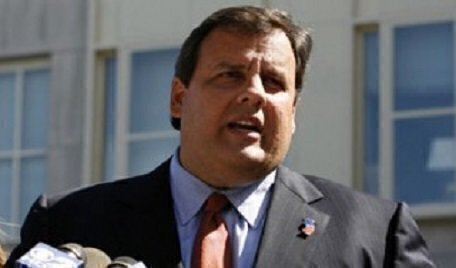One of the bigger cases of the current Supreme Court term pits federal control over legalized sports betting versus state’s rights. And there are signs after Monday’s arguments at the Court a change could be coming to the gambling world.
 What that change will be wasn’t clear after the Justices heard arguments in the case of Christie v. NCAA, a dispute between New Jersey and the combination of the NCAA and the major professional sports associations over New Jersey’s right to offer legalized betting on sports, which is taxed by the state.
What that change will be wasn’t clear after the Justices heard arguments in the case of Christie v. NCAA, a dispute between New Jersey and the combination of the NCAA and the major professional sports associations over New Jersey’s right to offer legalized betting on sports, which is taxed by the state.
But comments from two likely swing votes in the case indicated at least part of the Court’s expected decision next year could go the state’s way.
The Christie case, as it has become known, is in overtime at the Court. The Justices refused to hear an earlier version of the case back in 2014, so New Jersey passed a law that essentially forced the case back on the Court this year. And that strategy might have worked.
The Court took the second appeal to settle the following question: “Whether a federal statute that prohibits modification or repeal of state-law prohibitions on private conduct impermissibly commandeers the regulatory power of states in contravention of New York v. United States.”
In regular English, the Justices are considering if the federal law that regulates sports betting in New Jersey violates the 10th Amendment’s anti-commandeering provisions. Several Supreme Court decisions have said the 10th Amendment limits the ability of the federal government to take over or “commandeer” state officials or a state law.
In the Christie case, a federal appeals court in 2013 said New Jersey couldn’t legalize sports betting because it missed a filing deadline required in the federal Professional and Amateur Sports Protection Act (or PASPA). The statute had allowed Nevada and several other states to have sports betting, but New Jersey decided not to apply for permission to do so. Instead, decades later it enacted its own law to control sports betting. The Supreme Court didn’t take an appeal from the state in 2014.
New Jersey then tried a different move. It repealed state regulations on gambling to make it “a purely private matter.” The NCAA and the major professional sports organizations sued New Jersey again and won in court. The state is now appealing that decision in the Supreme Court.
New Jersey believes the appeals court in the second case went too far. “The majority thus reached the remarkable and unprecedented conclusion that the Constitution’s federal structure affords to Congress the power to prohibit States from repealing their own laws,” it said.
At least two Justices, Anthony Kennedy and Stephen Breyer, seemed to agree. In regard to the federal law, Kennedy told Paul Clement, who represented the sports groups, that the rules barring New Jersey from regulating sports betting ran afoul of the 10th Amendment.
“The citizens of the State of New Jersey are bound to obey a law that the state doesn't want but that the federal government compels the state to have. That seems commandeering,” Kennedy said.
Breyer told Clement that the lack of clarity between the federal law and state laws on the matter placed a burden on New Jersey.
“The subject matter of this law is the state. That's what this is about, telling states what to do, and therefore, it falls within commandeering,” Breyer said.
If the Court does rule for New Jersey, it could have a significant impact on the sports betting industry. One industry research firm forecast legalized sports gambling could expand to at least 32 states if the Court struck down PASPA. But Supreme Court rulings are difficult to predict, especially when the Court is tasked with evaluating an act of Congress.
One person confident of New Jersey’s victory in the case was Governor Chris Christie. "The idea that the federal government could nullify laws of the state was debated when the Constitution was being debated. It was defeated," Christie told reporters. "This is not something we're unsure of what the founders thought. We know what the founders thought."
A ruling from the Court is expected before its current term concludes in June 2018.







